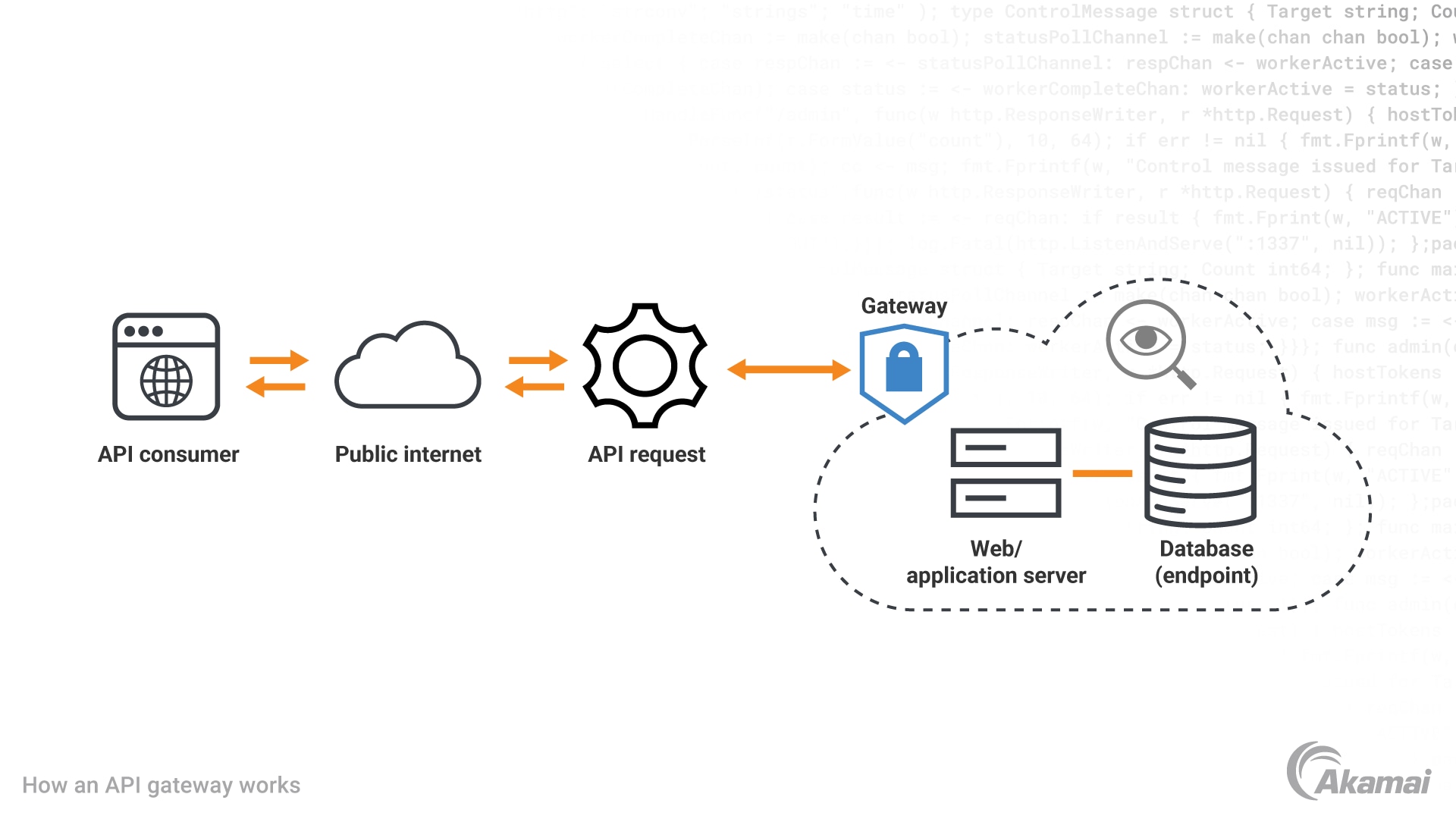API is an interface that allows you to access the functionality of an application, while a web gateway is a server that allows you to access the internet.
An API gateway is an API management tool that sits between your back-end services and your clients. It is responsible for request routing, API monitoring, and API security.
API gateways are often used to provide a single point of entry for all API requests (or API calls). This allows you to easily track and monitor all API traffic in one place. It also makes it easier to secure your API, as you can apply security policies at the gateway level.
API gateways can be deployed as on-premises software, as a cloud-based service, or as a hybrid of both.
If you are considering using an API gateway for your API management needs, here are a few things to keep in mind:
- Make sure the gateway supports the protocols you need.
- Ensure that the gateway can scale to handle the traffic volume you expect.
- Be sure to evaluate the security features of each gateway to find one that meets your security requirements.
- Compare the pricing of different API gateways to find one that fits your budget.
Why do you need an API gateway?
APIs empower you to enable new business models, monetize data, and increase collaboration with partners, thus putting them at the center of every digital experience. Beyond enabling new business opportunities, APIs can also increase your threat surface, and a lack of appropriate API authorization, authentication, and quota management policies can expose you to downtime and misuse.
Akamai API Gateway
The Akamai API Gateway is designed to eliminate the common challenges in scale, secure access, and delivery that developers face when publishing their APIs. Early customer deployments on the Akamai cloud platform, which delivers billions of API hits and petabytes of API traffic daily, underscore Akamai’s ongoing commitment to enabling DevOps initiatives to achieve digital success.
Among customers that deployed the Akamai API Gateway, several use cases have emerged that demonstrate its far-reaching value. As businesses continue to seek ways to make delivering, securing, and managing APIs easier, they are using the Akamai API Gateway to:
- Manage external APIs at peak demand: An international retailer deployed the Akamai API Gateway to manage external APIs, helping it to reduce latency and accommodate peak demand for applications that run across its website, mobile app, and in-store kiosks. The retailer leverages Akamai’s administrative APIs to integrate the gateway within existing workflows and to maximize application security for API endpoints using Akamai App & API Protector.
- Streamline app interactions: A global logistics provider has adopted the Akamai API Gateway to streamline customer ecommerce application interactions and realize the benefits of Akamai’s unparalleled availability and security. Leveraging the Akamai API Gateway, the customer was able to enjoy seamless integration with Akamai’s platform as well as the granular access control provided by the solution.
- Offload token authorization to reduce costs: A leading provider of hotel business process management (BPM) solutions has implemented the Akamai API Gateway to throttle API traffic and control requests. The company uses the Akamai API Gateway to offload token authorization, allowing the company to increase scalability and reduce costs.
Frequently Asked Questions (FAQ)
An API gateway is a component that sits between your back-end services and clients, providing a way to route requests to the appropriate service. It can also perform other tasks such as authentication, rate limiting, and caching.
An API gateway is a layer between your client and server that can be used to modify requests and responses, or to provide additional functionality like authentication and rate limiting.
API gateway architecture is a design pattern that allows developers to provide a single point of entry for accessing data and services from multiple back-end systems. The gateway typically provides a unified interface for all clients, making it easy for developers to create new client applications. It also abstracts away the details of the back-end systems, making it easier to change or add new services without affecting existing client applications.
API gateways offer a number of benefits, including:
- Increased security: API gateways can provide an additional layer of security by monitoring and filtering traffic before it reaches your back-end services.
- Improved performance: API gateways can cache common requests and responses, which can improve the performance of your system.
- Increased flexibility: API gateways can provide a single point of entry for all your back-end services, which can make it easier to change and add new services.
- Reduced costs: API gateways can help you save money by reducing the number of servers and other resources you need to run your system.
API gateways are commonly used to provide a single point of entry for a microservices architecture. They can provide load balancing, caching, and security features, and can also be used to aggregate data from multiple microservices.
API gateways are for routing traffic to different parts of a system.
API gateways are crucial for enhancing security, improving performance, and simplifying the integration process between diverse software applications.
API gateways employ encryption, authentication, and authorization mechanisms to ensure the secure transmission of data and prevent unauthorized access.
Common challenges include potential bottlenecks, security concerns, and compatibility issues with existing systems.
Compared to traditional methods, API gateways offer enhanced security, improved performance, and simplified integration processes.
Yes, API gateways excel in protocol translation, allowing systems with varying communication protocols to interact seamlessly.
Why customers choose Akamai
Akamai is the cybersecurity and cloud computing company that powers and protects business online. Our market-leading security solutions, superior threat intelligence, and global operations team provide defense in depth to safeguard enterprise data and applications everywhere. Akamai’s full-stack cloud computing solutions deliver performance and affordability on the world’s most distributed platform. Global enterprises trust Akamai to provide the industry-leading reliability, scale, and expertise they need to grow their business with confidence.


